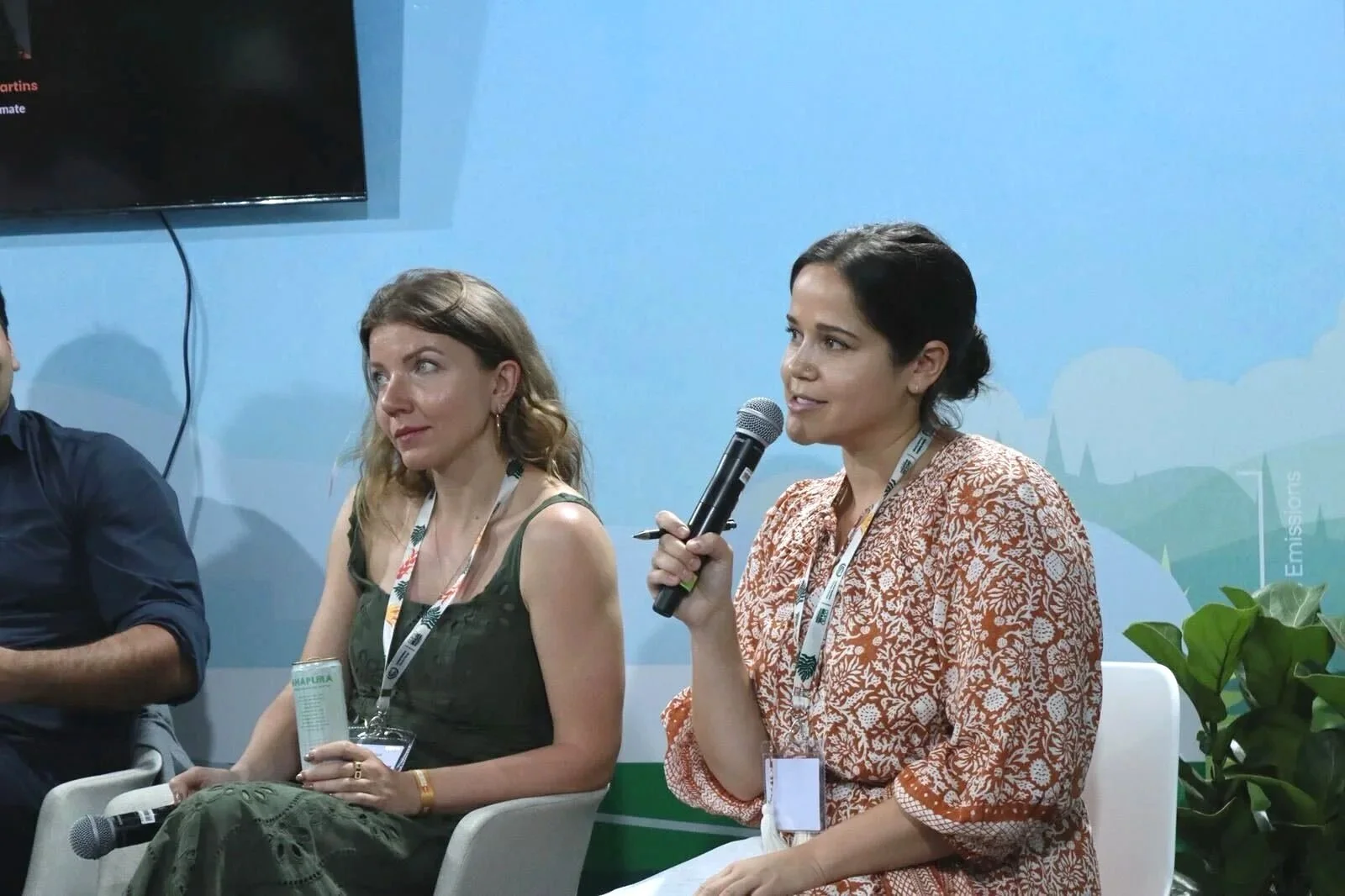Advancing Carbon Removal in Latin America: Takeaways From COP30
As the global climate community gathers for COP30 in Belém, Brazil, conversations increasingly highlighted the important role that carbon dioxide removal (CDR) plays in meeting the goals of the Paris Agreement. Against this backdrop, the Carbon Business Council brought together leading voices from across Latin America to examine how the region can responsibly scale carbon removal and the unique role the region can play in shaping global best practice.
Moderated by Sasha Chebil, Communications Director at the Carbon Business Council, the panel convened regional leaders and project developers for an in-depth discussion at the CDR30 Pavilion. Speakers included Future Climate’s Mariane Martins, InPlanet’s Felix Harteneck, Mombak’s Caio Franco, Native’s Michael Green, and Terradot’s Julia Marisa Sekula. With expertise across multiple CDR pathways, each brought a different vantage point on how Latin America can scale high-integrity carbon removal.
Together, the speakers reflected the diversity of the region’s fast-growing carbon removal ecosystem, covering policy, project development, market design, finance, and community engagement. The Carbon Business Council is building on this regional momentum and leads a working group focused on carbon removal deployment in Latin America.
A Regional Advantage with Global Reach
With abundant renewable energy, rich natural resources, and strong foundations in sustainable land use, Latin America is uniquely positioned to play a leading role in the next wave of carbon removal. Local innovation is already shaping what high-quality CDR looks like in practice, from Brazil’s reforestation and soil carbon initiatives to Chile’s mineralization potential and Argentina’s agricultural systems.
As Julia Marisa Sekula, Co-Founder and CFO of Terradot, observed, “Latin America can be the global gold standard for carbon removal: leveraging renewables, natural resources, and innovation.”
But advantages alone aren’t enough to deliver impact at the scale required. Recognizing COP30 as an “implementation COP,” panelists emphasized that progress now hinges on enabling conditions, including regulatory clarity, investor confidence, stable demand signals, and cross-border collaboration.
Several key themes emerged:
Regulatory alignment: Fragmented frameworks across the region create friction. Harmonizing standards and supporting cross-border cooperation will be essential for scale.
Finance and investment: Early projects need tools that lower risk. For example, public funds that help attract private investors, low-interest loans, and upfront incentives that can move the first generation of projects from pilots to commercial deployment. Regional investment roadmaps can also help guide capital toward high-quality projects.
Standards and transparency: Robust MRV systems, clear governance, and community-centered design are critical for building trust. Embedding social and ecological co-benefits into project design strengthens long-term confidence.
Market linkages and demand signals: “Integration with global markets will unlock finance and climate impact,” noted Caio Franco of Mombak. Creating buyer-seller platforms that connect projects with international demand will be key to building durable market signals.
Pathway plurality: A method-neutral approach encourages innovation and supports scale across all carbon removal pathways.
These perspectives underscore that technical, financial, and regulatory progress must advance together to unlock responsible, large-scale deployment.
The science is clear: carbon removal is a necessary part of achieving net-zero goals. With resources, innovation, and growing political momentum, the Latin America region has an important opportunity to anchor itself in the global removal industry.
Watch the Full Discussion
Missed the discussion? Watch the full COP30 LatAm event livestream and hear directly from the speakers here.
